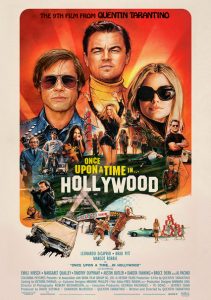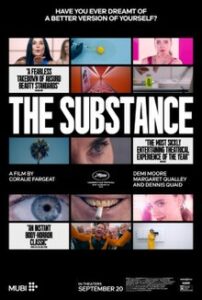Blue Moon-2025
Director Richard Linklater
Starring Ethan Hawke, Margaret Qualley
Scott’s Review #1,514
Reviewed January 26, 2026
Grade: B+
Blue Moon (2025) is a character-driven look at a talented writer on the brink of breakdown. Over the course of one boozy night, the audience is introduced to the troubled man and comes to envelop him and his sometimes off-putting ideas.
The movie succeeds through a combination of crisp, sardonic, well-written dialogue and Ethan Hawke’s inspired performance as Lorenz Hart, an American lyricist living in the 1940s.
A film every Old Broadway New Yorker ought to love, the setting is the famous theatre district eatery, Sardi’s, where many a piano song has been sung, and drink has been drunk by both popular and struggling players in the Broadway game.
The plot centers on the night of March 31, 1943, as World War II rages.
Hart reflects on himself following the opening night of Oklahoma!, a new musical created by his former colleague Richard Rodgers (Andrew Scott), where a celebration is planned to gush over its overwhelming success. He despises the corny, overly wholesome lyrics and is dismayed by the production’s popularity.
The talkative, cynical, and newly sober Hart visits with bartender Eddie (Bobby Cannavale), who tries unsuccessfully not to serve him liquor, and enlisted sergeant piano player Morty (Jonah Lees), who is on leave.
Hart also commiserates with writer E.B. White (Patrick Kennedy), soon to become famous for stories like Stuart Little and Charlotte’s Web, the former of which he gets from Hart.
While not the flashiest film, director Richard Linklater draws an excellent performance from Hawke and miraculously and flawlessly makes Hawke’s character appear physically very short in stature.
This is more difficult than it sounds from a cinematography perspective, and it also deserves props for creating a unique-looking restaurant-and-bar shape.
Hawke came into his own with 1989’s Dead Poets Society and has continued to deliver more sophisticated performances as he has aged.
Except for a brief opening sequence where Hart’s ultimate fate is revealed, the entire film takes place in the dark restaurant/bar.
Hart spends time chatting with Elizabeth Weiland, an unrequited love interest of his, who ruminates on her own unsuccessful love life.
Over the course of the film, it’s sad to see Hart’s life unravel. Fans will know that Rogers and Hammerstein were a tremendously successful musical duo and not Rogers and Hart. As Hart spends time pitching ideas to Rogers, we realize their partnership will go no further than it already has.
Hawke is superb at delivering a massive amount of lines, showcasing Hart’s sometimes rambling and fragmented ideas. The handsome actor adopts a more homely persona in Hart, suffering rejection after rejection throughout the evening.
The glitz of Broadway is enshrouded within the walls of Sardi’s, famous for showcasing caricatures of Broadway celebrities. In satisfying form, a close-up of a caricature of Hart clings to the wall as Blue Moon ends, presumably long after his death.
Briefly skated over is Hart’s sexuality, said to lean more toward homosexuality than is ever more than alluded to, which is a disappointment. The closest the film comes to any dissection of this nature is when Hart invites a delivery boy to an afterparty and has a a conversation with Morty in the men’s room.
Both story points go nowhere. Instead, Hart mostly pines over Elizabeth.
The winning formula is the dialogue, sometimes teetering off course when Hart goes off on tangents. Still, the central concept of a misunderstood and underappreciated creative genius is received loud and clear.
While good, Qualley and Cannavale are never given great moments to show off their acting chops. The best supporting player is Andrew Scott, who provides entertaining banter while playing opposite Hawke.
Linklater offers up a talkative, cerebral film about the celebrations and heartbreaks of life through art. Through enriching conversations, Blue Moon (2025) delivers a thought-provoking dialogue-heavy cinema that is an intelligent, confined experience.
Oscar Nominations: Best Actor-Ethan Hawke, Best Original Screenplay



